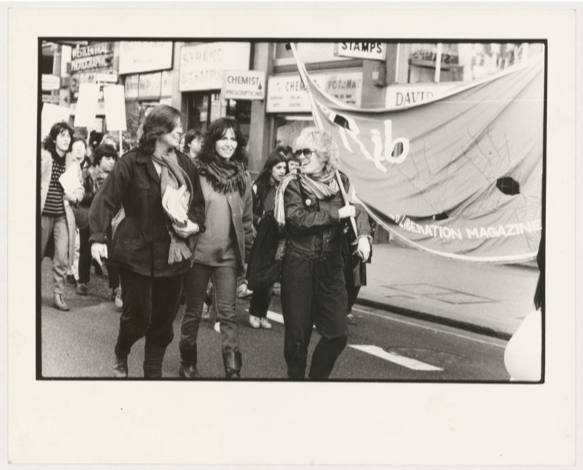by Hollie Mather, level 3 History undergraduate
Third year history has been the most intellectually stimulating and thought-provoking year of study for me at the University of Lincoln. As Level 3s, we get to select modules that align with our academic interests and we’ve been able to write our dissertations (the ‘independent study’) on topics that really interest us. I chose to focus on social and emotional history by analysing articles and letters contained in the Second Wave feminist periodical Spare Rib. I wanted to examine how emotions were used to mobilise feminist campaigners through Spare Rib. In my study, I found that Spare Rib enabled the creation of an emotional community by acting as a space where readers and writers could share their emotional experiences in ways that challenged the emotional culture of self-restraint present in mid twentieth-century Britain. I argued that emotions were fundamental to the experiences of Second Wave feminism and I analysed which emotions were of particular importance in creating change.

It is not compulsory to start researching your dissertations over the summer break but it will significantly enhance the progress of your work, while ensuring calmer nerves nearer to the submission date. During the summer break between Level 2 and Level 3, I worked a summer job for 20 to 40 hours a week to ensure I was financially stable on my return to study for my final year at university. However, I spent a few hours each week researching my dissertation topic as well. I set myself the target of reading two secondary pieces of scholarship a week as well as finding at least one primary source of interest. The time spent on dissertation research over the summer significantly helped me in preparing my dissertation, and ensured I was not experiencing the levels of stress others in my year were experiencing as the deadline drew near. I am really glad that I took the initiative to set myself targets over the summer break, despite it not being compulsory. Whether this is gathering potential sources, background research into your area of interest, or developing arguments, I think it is advantageous to plan and start early than to start later and struggle with managing other Level 3 work commitments at the same time.

When you return to university in September – hopefully prepared! – you will be told by the Independent Study module co-ordinators to arrange a meeting with your supervisor. These meeting are really important as they will allow you to discuss your research so far. The meetings I had with my supervisor were invaluable during my dissertation process and we engaged in really thought-provoking discussions, even during 9am meetings! Depending on the modules you have chosen and been assigned for third year, you may have several other deadlines due around the same time of the dissertation hand in date. I had two other assignments to research, write, and submit three days either side of the dissertation deadline but having done research for my dissertation over the summer break, I felt calm and collected while many other students were in a collective state of panic.
I would encourage you to see your supervisor on a regular basis; they are there to offer support and guidance when you require it. You will not get penalised for seeing them too often or too little. They can also provide you with some thought-provoking ideas that could inspire and transform your dissertation into something amazing. Each supervisor will offer a different experience, depending on who you have been assigned to. It is important to schedule regular meetings with your supervisor to discuss your ideas. Not only will this allow you to shape your dissertation and provide an opportunity to ask any questions you may have, this will also prompt you to prepare work and actively get research done.
By managing to get the first draft of my dissertation written by the beginning of February (a month before the deadline), I experienced a level of calm and focus during the redrafting process as the final submission date neared. I had lots of time to meet with my supervisor to discuss changes that needed to be made. I could even take a week off from analysing and editing this piece of work to focus on other assignments, deadlines, and commitments. This meant that when I re-approached my dissertation, I did so afresh and recognised the mistakes I had made and edited accordingly.
Most of all, I’d encourage you to make sure you work hard and enjoy the experience of researching and writing the dissertation, as it will result in an incredible piece of work that you will feel really proud of when it is (finally!) finished. Good luck!
